Beijing-bound Malaysia Airlines MH370 with 227 passengers, including two infants, from 14 different countries and 12 crew members, disappeared on Saturday.
Four days after the baffling the plane went missing, there was still no trace of the aircraft.
Search teams have been scouring the area between the northeast coast of Malaysia and southwest Vietnam where the plane was last detected.
The mysterious disappearance of the Malaysian airlines flight may face many parallels to Air France 447, an Airbus A330 that crashed in June 2009.
"The search and rescue teams have expanded the scope beyond the flight path to the West Peninsular of Malaysia at the Straits of Malacca. The authorities are looking at a possibility of an attempt made by MH370 to turn back to Subang. All angles are being looked at. We are not ruling out any possibilities," the airlines said in a statement today.
Rediff.com looks at 5 other plane crashes that remained shrouded in mystery.
...
Air France Flight 447
Image: A combination image of photographs of plane wreckage of Air France flight 447 released by the Investigation and Analysis Bureau.Photographs: BEA/Handout/Reuters
On June 1, 2009, an Air France flight from Rio de Janeiro to Paris crashed in the Atlantic midway through the flight without sending a distress signal killing 216 passengers and 12 crew members.
Though the first major wreckage was located within 5 days of the accident the aircraft's black boxes were not recovered from the ocean floor until nearly two years later.
The French government's official accident investigators found that the flight crashed due to a combination of technical failures and pilot error.
They found that a speed sensor on board the plane, called a pitot tube, stopped functioning after becoming clogged with ice at high-altitude while the plane was flying through a thunderstorm.
The auto-pilot disengaged and shifted the controls back to the pilots. As they flew in heavy turbulence the pilots failed to diagnose the severity of the problem because the pitot tube was sending inaccurate data to the cockpit, the report said.
It took three years for investigators to piece together what led to the crash.
"Despite these persistent symptoms, the crew never understood that they were stalling and consequently never applied a recovery maneuver," the 2012 report said.
From the first stall warning to when the plane crashed four minutes later, the pilots never sent a distress signal as they frantically tried to save the plane.
According to the black box recordings, the pilots appeared unaware they were going to crash until the final seconds before hitting the water.
The aircraft remained stalled during its entire 3 minute 30 second descent from 38,000 feet before it hit the ocean surface at a speed of 280 kmph.
The aircraft broke up on impact.
...
TWA Flight 800
Image: The remains of the TWA Flight 800 from New York to Paris that exploded off Long Island, New York, reassembled from recovered wreckage, on display at National Transportation Safety Board Training Facility in Ashburn, VirginiaPhotographs: Hyungwon Kang/Reuters
On July 17, 1996, Trans World Airlines Flight 800, a Boeing 747-100, exploded and crashed into the Atlantic Ocean, 12 minutes after takeoff from John F Kennedy International Airport.
All 230 people on board were killed in the third-deadliest aviation accident to occur in US territory.
Claims that the flight was hit by a missile amid a federal government cover-up, or a bomb had exploded, or a meteor strike downed the Boeing 747-100 were vehemently denied by the FBI and the National Transportation Safety Board investigators who spent four years looking into the cause of the crash.
The most probable cause of the accident according to the NTSB investigation report was an explosion of flammable fuel/air vapors in a fuel tank, and, although it could not be determined with certainty, the most likely cause of the explosion was a short circuit.
...
Flying Tiger Line Flight 739
Image: People stand around a vintage Lockheed L-1049 Super Constellation aircraft during the Engiadina Classics airshow at the airport in the town of Samedan, near the eastern Swiss mountain resort of Sankt MoritzPhotographs: Arnd Wiegmann/Reuters
On March 16, 1962, a Lockheed L-1049 Super Constellation, Flying Tiger Line Flight 739, chartered by the US military disappeared over the Western Pacific Ocean.
The aircraft was transporting 93 Army men and 3 South Vietnamese from Travis Air Force Base, California to Saigon, Vietnam. After refuelling at Andersen Air Force Base, Guam, the Super Constellation was en route to Clark Air Base in the Philippines when it disappeared.
No distress calls were made and all 107 people aboard were presumed dead.
Numerous searches by the military failed to turn up any evidence of the airliner, nor the cause of its disappearance.
...
Pan Am Flight 7
Image: Scottish rescue workers and crash investigators search the area around the cockpit of Pan Am flight 103 in a farmer's field east of Lockerbie Scotland after a mid-air bombing killed all 259 passengers and crew, and 11 people on the groundPhotographs: Reuters
On November 8, 1957, Pan Am Flight 7 departed San Francisco to Honolulu but vanished in the Pacific Ocean. Last contact with the aircraft was made between the pilot a US Coast Guard cutter.
The flight never arrived in Hawaii.
The plane wreckage was found a week later by the Navy aircraft carrier Philippine Sea, which spotted bodies and plane debris floating off course in the ocean northeast of Honolulu.
The crash killed 44 people but the mystery was made worse as no distress signals were sent. Toxicology results performed showed higher than normal carbon monoxide levels in the bodies of recovered passengers.
...
Air India Flight 182
Image: A member of the Royal Canadian Mounted Police stands watch near the wreckage of Air India Flight 182 that was bombed over the Atlantic in 1985 as it sits in an undisclosed location in Vancouver, British ColumbiaPhotographs: Andy Clark AC/Reuters
The Air Indian flight, flying from Canada to India, blew up over the Atlantic Ocean on 23 June, 1985 at an altitude of 31,000 feet. It crashed into the Atlantic Ocean killing all 329 people aboard.
The worst disaster in Indian aviation history killed 268 Canadians, 27 British citizens and 24 Indians.
On 23 June, Air India Flight 182 departed for London Heathrow Airport, en route to Palam International Airport, Delhi, and Sahar International Airport, Mumbai (then Bombay).
The crew of the Boeing 747 “squawked 2500” (a routine activation of its aviation transponder) as requested by Shannon International Airport Air Traffic Control, then disappeared.
A bomb in a Sanyo tuner in a suitcase in the forward cargo hold had exploded while the plane was at 31,000 feet. It caused rapid decompression and the break-up of the aircraft in mid-air.
The wreckage settled in 6,700 feet deep water off the south-west Irish coast, 190 km offshore of County Cork. No "mayday" call was received by Shannon ATC.
ATC asked aircraft in the area to try to contact Air India, to no avail. The ATC declared an emergency and requested nearby cargo ships and the Irish Naval Service vessel LÉ Aisling to look out for the aircraft.
By 09.13 GMT, the cargo ship Laurentian Forest discovered the wreckage of the aircraft and many bodies floating in the water.
Previous 747s had been damaged or destroyed on the ground, but this was the first jumbo jet downed by sabotage.

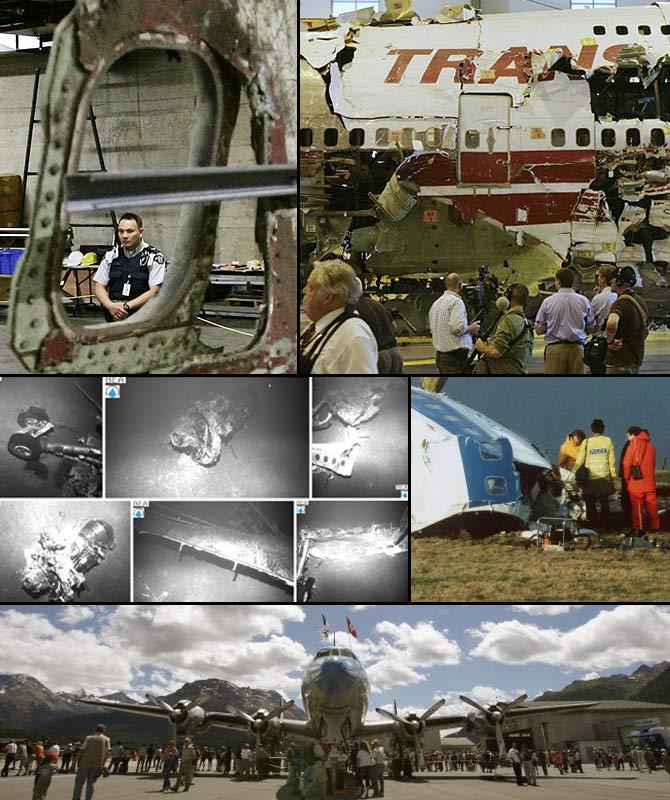
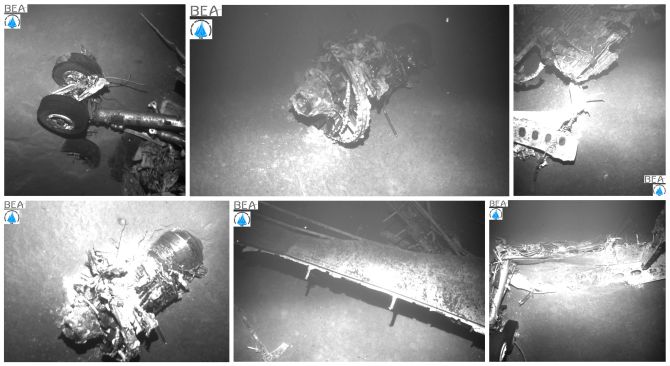
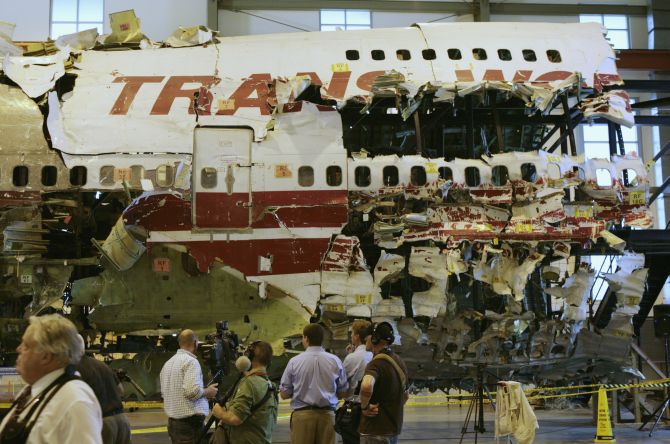
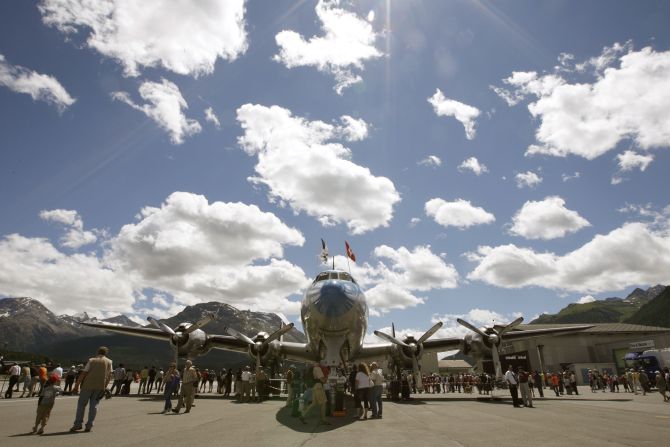
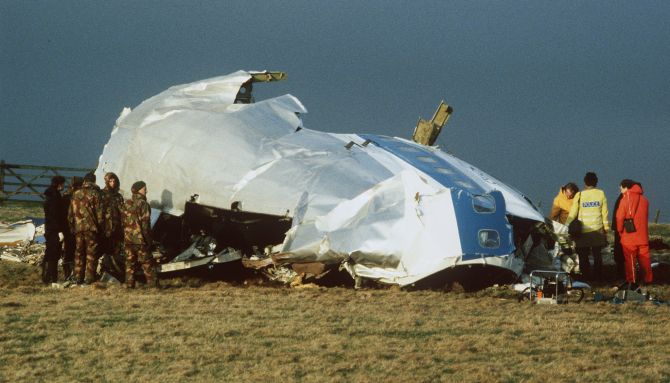
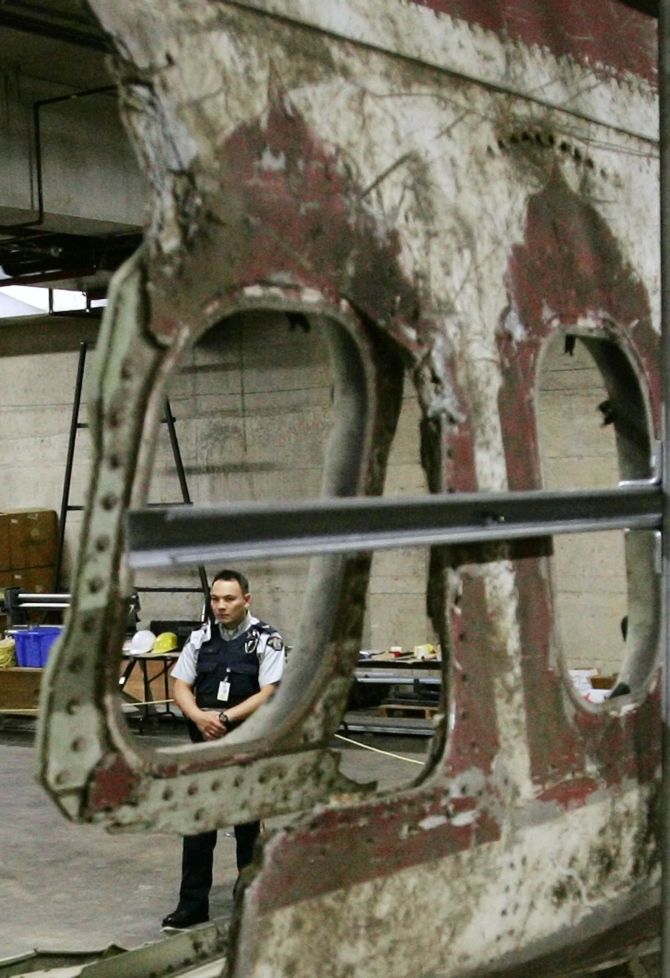
article